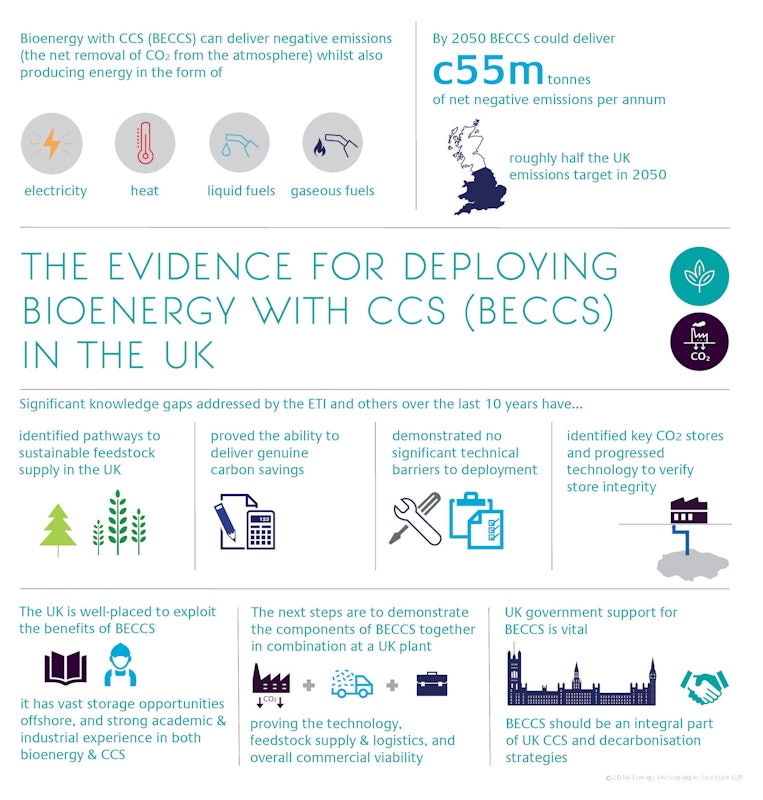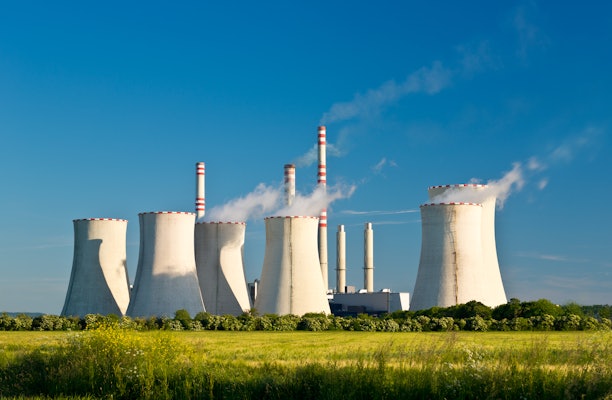The evidence for deploying bioenergy with CCS (BECCS) in the UK

Dennis Gammer
Strategy Manager
Bioenergy with CCS is a credible decarbonisation technology
To tackle the causes of climate change, the UK has committed to an 80% reduction in its greenhouse gas (GHG ) emissions by 2050, compared to 1990 levels. Meeting these targets will require a massive transformation in the way energy is generated and used in the UK.
Bioenergy technologies when combined with Carbon Capture and Storage (BECCS) can deliver negative emissions (net removal of CO2 from the atmosphere) whilst producing energy in the form of electricity, heat, gaseous and liquid fuels.
Negative emissions provide important emissions ‘headroom’ as the UK transitions towards a low-carbon energy system, since the additional ‘breathing space’ afforded by negative emissions reduces the need for rapid emissions reductions in sectors such as heavy duty transport and aviation which are more difficult and expensive to decarbonise. Evidence from ESME, the ETI’s peer-reviewed energy system modelling environment, suggests that by the 2050s, BECCS could deliver c.-55 million tonnes of net negative emissions per annum (approximately half our emissions target in 2050), whilst meeting c.10% of the UK’s future energy demand. This would reduce the cost of meeting the UK’s 2050 GHG emissions target by up to 1% of GDP.

Dennis Gammer
Strategy Manager
Dennis Gammer joined the ETI as Strategy Manager, Carbon Capture and Storage in 2010. He has 30 years’ experience in technology development and licensing and is a chartered chemical engineer
